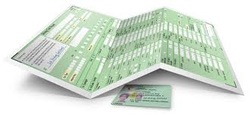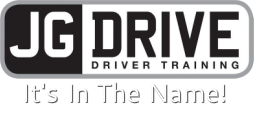Starting driving lessons...
|

Getting your Provisional Licence...
Before you can start driving on the road you’ll need a provisional licence, which currently costs £50. The quickest way to apply for your provisional licence is online at GOV.UK. You’ll need a debit or credit card, proof of your identity (such as your passport) and your address details for the last three years. You can apply for your provisional licence by post. You apply using a D1 form, which you can get from any post office. Find out more about applying by post at GOV.UK. You can apply up to three months before your 17th birthday (or when you’re 16 if you receive the higher rate of the mobility component of Disability Living Allowance). There are some things you must and mustn’t do when you’re driving with a provisional licence. Check GOV.UK to see the rules about driving with a provisional licence. Finding a Driving Instructor... Who can teach you to drive? If you’re paying someone to teach you to drive, they must be an approved driving instructor (ADI) or a trainee driving instructor. You can also practise your driving with friends or relatives, but they must;
See GOV.UK for more details about who can teach you. Why do you need a driving instructor? It’s really important to learn how to drive safely right from the beginning – bad habits are hard to break! Driving instructors are specially trained to teach you what you need to know to be safe on the road and pass your test. They have lots of experience and knowledge about driving, which they’ll use to help you become a confident, safe driver. Finding an instructor If you have friends or relatives who’ve learnt to drive recently, ask them if they would recommend their instructor. You could also try searching online or using a local business directory. It’s important to make sure your instructor is right for you. Try to choose an instructor who;
If you start your lessons and find you don’t like your driving instructor, look for a new one: it’s important that you get on well with whoever is teaching you to drive. Approved driving instructors can choose to follow the ADI voluntary code of practice. How much will learning to drive cost? Learning to drive can be quite expensive. The average cost of an hour’s driving lesson is £35+; if you need 45 hours of instruction before passing your test, it’ll cost over £1500 to get your licence – plus the cost of your licence and your tests. Lesson prices can vary widely between instructors, and depending on where you live. Doing some research locally will help make sure you're happy with the lesson price of your chosen instructor. Some driving schools offer special deals for block-booking lessons or reduced rates for two-hour lessons, so it’s worth asking what deals are available when you book. Finding a cheap instructor or trying to pass your test with too few lessons isn’t likely to save you money in the end. Without proper instruction, it could take lots of tries before you pass your test – which will cost you more money. Planning and recording your driving To help you get the most out of your lessons, it’s a good idea to plan your lessons with your instructor and record what you’ve covered. This will also help you see how close you are to being ready for your test. Download the Driver’s Record here. Practising driving Like learning any new skill, it's important to practise your driving. The more you practise, the better you’ll get. Talk to your instructor and anyone helping you to practise about what you need to work on. If the person who is helping you to practise passed their driving test a while ago, it might be a good idea for them to refresh their driving knowledge. They could try taking the practice theory test to see if there’s anything they need to brush up on. |

|
|
